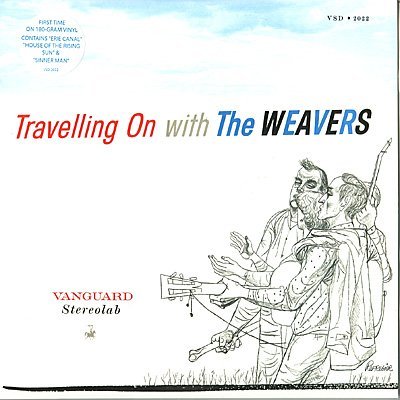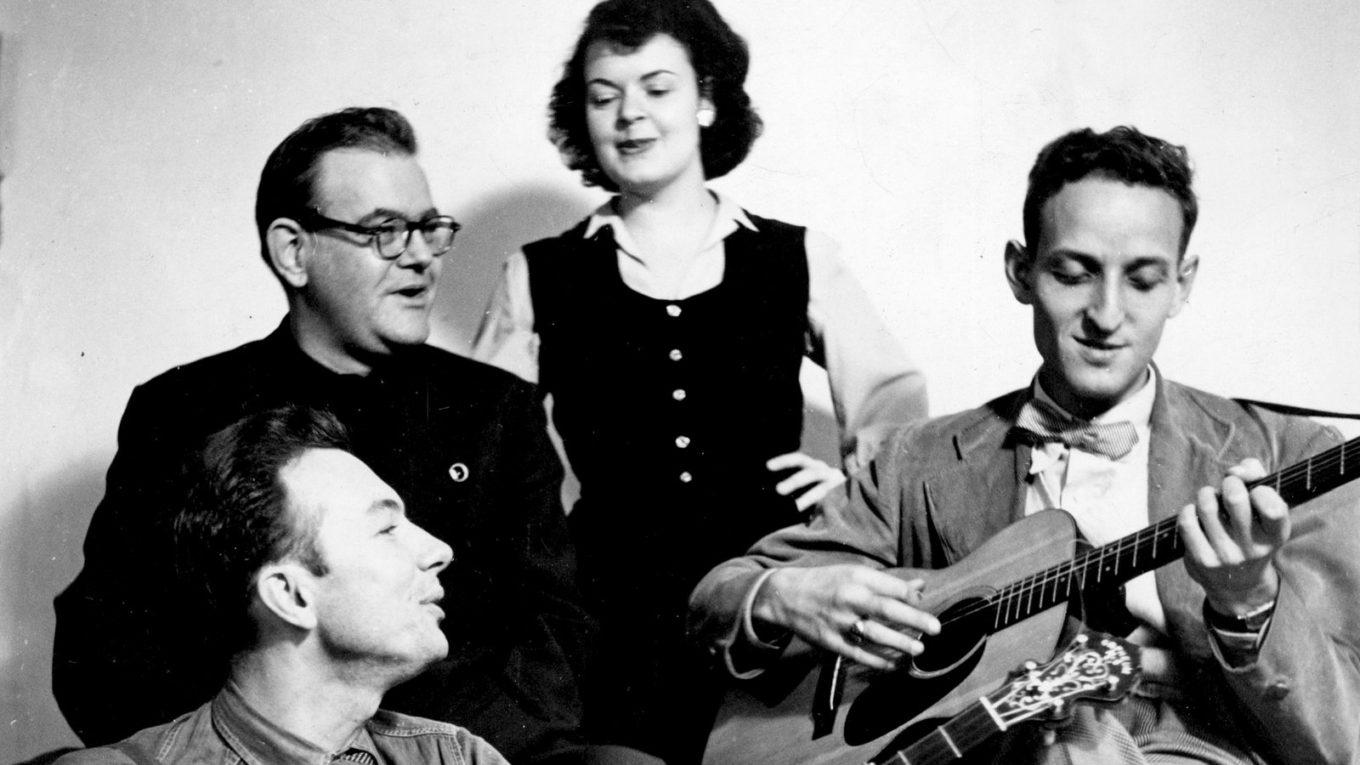The Weavers Songs Ranked
The Weavers were an American folk music quartet based out of the Greenwich Village area in New York City. They sang traditional folk songs from around the world, as well as blues, gospel music, children’s songs, labor songs, and American ballads, and sold millions of records at the height of their popularity. Their style inspired the commercial “folk boom” that followed them in the 1950s and 1960s, including such performers as The Kingston Trio, Peter, Paul, and Mary, The Rooftop Singers, The Seekers, Joan Baez, and Bob Dylan. Here are all of The Weavers songs ranked.
Don’t miss out on the TIMELESS The Weavers music below! Click to experience the eclectic style of songs by this band.
10. Midnight Special (Midnight Special, 1952)
“It’s a great classic song, of course. Unfortunately, the Weaver’s 50’s-style lily-white vocal harmonies sound cringe-inducingly corny and dated today.”
9. Wimoweh (Hard, Ain’t It Hard, 1955)
“”Wimoweh”, also known as “The Lion Sleeps Tonight” , was originally recorded in 1939 by Solomon Linda’s Original Evening Birds, which outstanding record features on my list for that year; Solomon Linda, who was a South African Zulu singer, wrote the song in the 1920s, with lyrics written in Zulu. English lyrics were subsequently written by George Weiss. The song then enjoyed a revival in the 1950s and 1960s in particular, after Alan Lomax brought the Linda recording to the attention of Pete Seeger of The Weavers, with the song cut by many artists after The Weavers recorded it on 25 October 1951. They renamed the song “Wimoweh” which was a mishearing of the original song’s chorus of “Uyimbube” in Zulu.”
8. So Long (Hard, Ain’t It Hard, 1955)
“”So Long” by Gordon Jenkins and His Orchestra and The Weavers is good, mid to up tempo jolly pop with a 1950s Western musical vibe, featuring male and female chorus backing vocals and an individual female singer alternating with Jenkins, the woman’s vocal outdoing Jenkins.”
:format(jpeg):mode_rgb():quality(90)/discogs-images/R-7837549-1449857762-8445.jpeg.jpg)
7. The Hammer Song (The Weavers at Carnegie Hall, 1957)
“The song was written in support of the progressive movement and the Progressive Party in the United States, which campaigned for desegregation, extension of the welfare system, foundation of a national health insurance system, and the development of social justice. It was first performed in public by Pete Seeger and Lee Hays on 3 June 1949 at the St. Nicholas Arena in New York City at a testimonial dinner for the hierarchy of the Communist Party of the United States, on trial at the time accused of advocating the overthrow of the United States government.”
See more: The Weavers Albums Ranked
6. Wasn’t That a Time (Wasn’t That a Time, 1949
“It was written by Lee Hays (co-founder of the Weavers with Pete Seeger) and Walter Lowenfels, the latter a poet, journalist and civil rights and labor activist, and recorded by the Weavers comprising Pete Seeger (banjo and vocal), Lee Hays (piano and vocal), Fred Hellerman (guitar and vocal) and Ronnie Gilbert (vocal). The group deliver an impassioned, overtly political vocal performance as they rail against the intolerant anti-libertarian political environment they perceive, vowing to free the soul of man”
5. Kisses Sweeter Than Wine (Hard, Ain’t It Hard 1955)
“The song is taken at midtempo and has a lovely guitar intro and fine jangling guitar support throughout with a nice solo too, and alternate male and female voices, Barbara Robison’s vocals being especially attractive, as Hays and Robison tell their humorous tale of a long-lasting romance between a farmer and his wife, and the procreational outcomes”

4. When the Saints Go Marching In (Hard, Ain’t It Hard 1955)
“The Weavers’ rendition of the song, which features banjo prominently on the arrangement, is enthusiastic but no more than fair, the highlight being an excellent Dixieland style instrumental bridge.”
3. The Roving Kind (Hard, Ain’t It Hard 1955)
“The Roving Kind” is a variation of the British folk song “The Pirate Song”, and uses a maritime themed metaphor for a nice but flirtatious girl. The Weavers’ excellent version of “The Roving Kind” has a jaunty arrangement featuring a male lead vocal and mixed group vocals on the choruses, with horns leading on the bridge.”
2. On Top of Old Smoky (Hard, Ain’t It Hard 1955)
“The fine performance has banjo accompaniment, with guitar and rhythmic support, and lush vocal harmonies on a mid to fast tempo arrangement, each half of each line of the lyrics being spoken by one group member, and then sung repeated in response by the remainder of the group, as they narrate their tale of the uncertainties and disappointments of love”

1. Tzena, Tzena, Tzena (Hard, Ain’t It Hard 1955)
“”Tzena, Tzena, Tzena” by Gordon Jenkins and His Orchestra is a song originally written in Hebrew in 1941. The English lyrics, used on the Jenkins and Weavers’ version, were written by Mitchell Parish and differ greatly from the Hebrew original. The Jenkins and Weavers’ rendition has frantic paced vocals by The Weavers, a band chorus and an individual male and female vocal section, with forceful horns and strings accompaniment, and is a good performance.”

